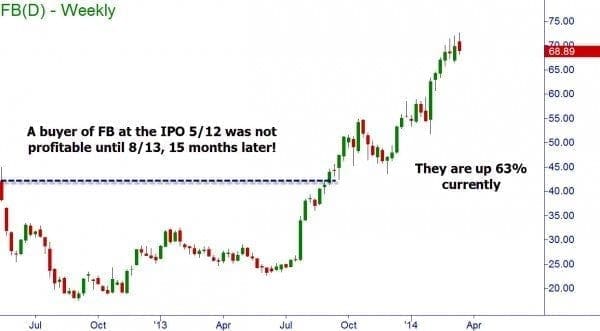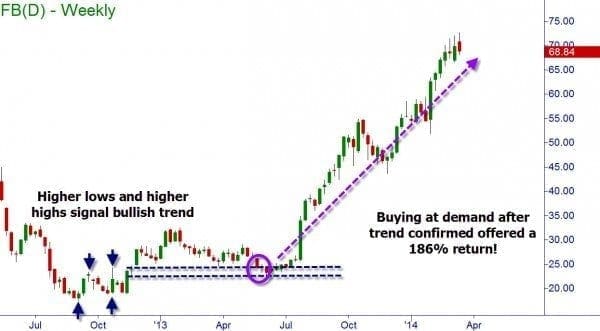A student recently inquired if there was a difference in trading newer stocks versus older stocks.? Newer meaning that they are stocks of newly listed companies and had their initial public offering (IPO) within the last year.? Older stocks have been trading on the exchanges for several years.
The answer is an overwhelming YES!? There definitely is a difference in how these securities should be traded.? Don?t get me wrong, the core strategy of trend with supply and demand applies to both.? But the key is that since the new stock hasn?t been trading for a long time, we do not know how it will react in different market environments.
Stocks are a lot like people in that they develop personalities.? There are many institutions and market makers trading the same stocks daily.? When you identify the personality of the stock, you are more likely to successfully predict its behavior in both bullish and bearish markets.
IPO?s have not developed their personalities yet.? Even though supply and demand will work, you will have a higher probability for success on longer time frame trading and investing with an ?older? stock.? As a general rule, I avoid the newer stocks for any trading other than intraday and will not usually look to trade any stock with less than six months of trading history.
IPO?s offer nothing more than a gambling opportunity.? I remember when there was so much hype surrounding Facebook?s IPO.? Online Trading Academy instructors warned students against buying the stock when it became public as most of the hype would die off quickly and cause the price to drop.
Someone who held onto their Facebook stock from the IPO is now experiencing profits, but they wasted so much time in their investing life where they could have made profits! ?A better opportunity to trade this stock would be to wait for a confirmed trend and then buy on a pullback to demand.
In our courses at?Online Trading Academy, we teach our students how to screen for high probability opportunities and filter out stocks that may have too high of a risk to your capital.? Learn how to find these and protect your money by joining us at your local center today.
Brandon Wendell


